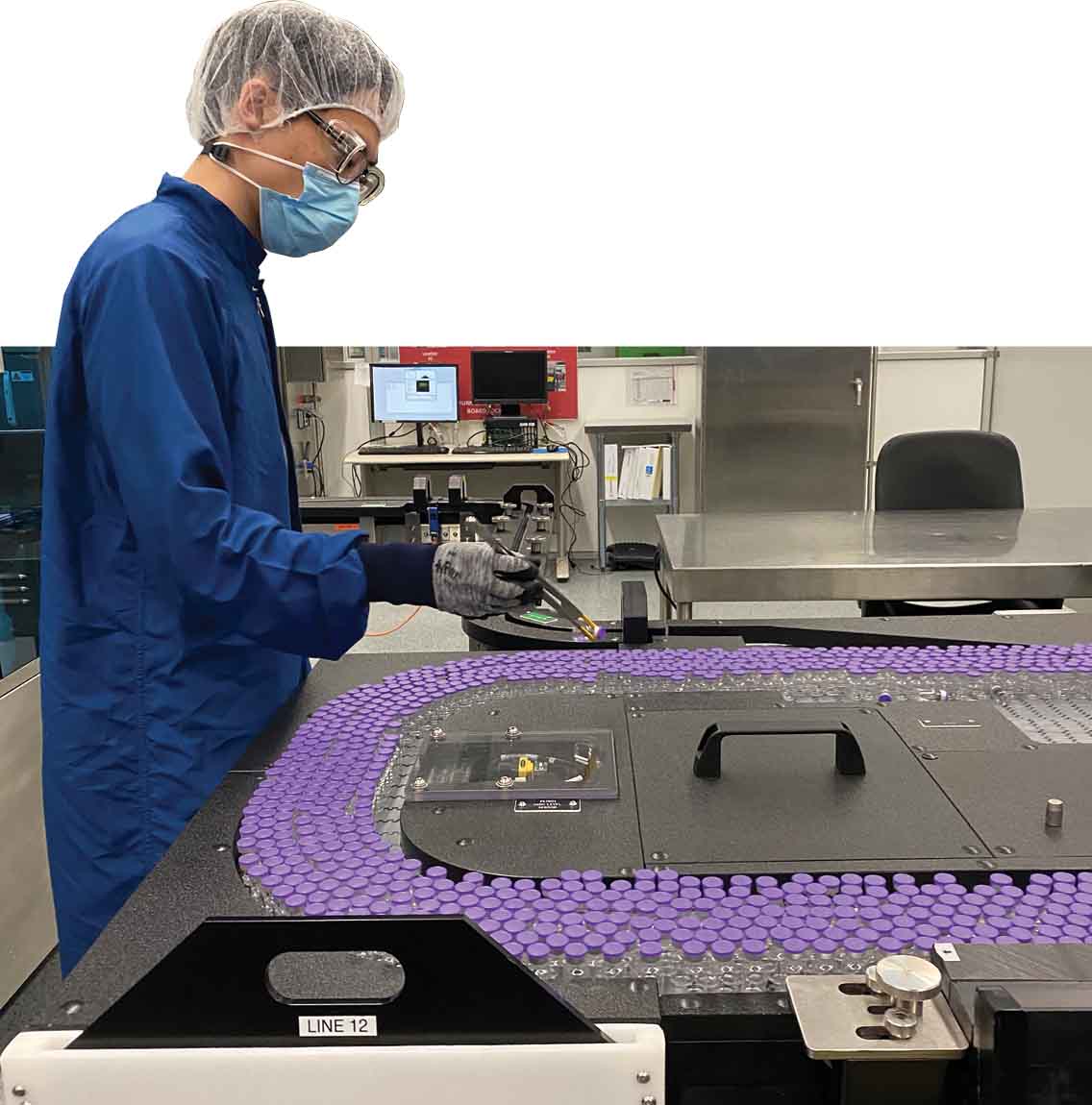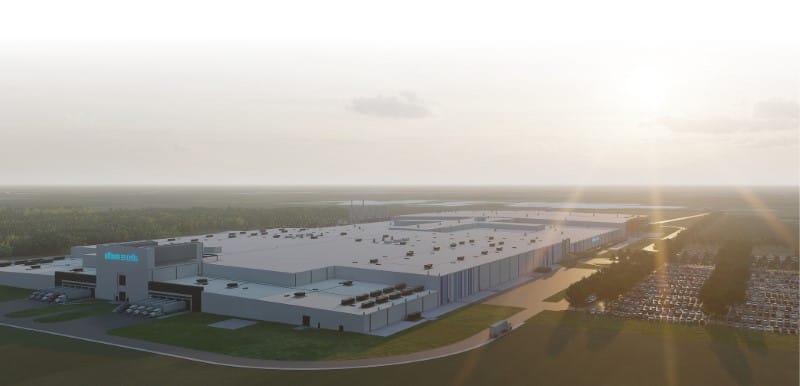When General Motors announced plans last year to invest billions of dollars into EV and EV battery manufacturing at multiple sites in Michigan, CEO Mary Barra placed some perspective on a project that represents a resounding endorsement of the storied automaker’s home state, the place of GM’s birth in 1908.
“The $7 billion investment is the largest in GM history,” said Barra, unveiling GM’s intentions in January, “and so it’s appropriate that it’s in Michigan.”
To the cradle of U.S. automaking, GM’s announcement delivered not just joy but a sense of relief and some much-needed momentum. It snapped a series of stinging defeats in the super-charged EV sweepstakes. Michigan had witnessed a surge of billion-dollar EV investments go South, literally. Second-guessing and soul searching came to a head after Ford in September 2021 announced blockbuster battery investments in Tennessee and Kentucky.
“We are getting our lunch taken away on a regular basis by other states that are more equipped to retain and attract businesses,” lamented John Walsh, president and CEO of of the Michigan Manufacturers Association, in testimony before state legislators.
Just before the calendar turned to 2022, those Michigan lawmakers acted. The result has been a screeching 180 that would impress the most brazen of street drivers laying drags on a Saturday night.
GM was but the first automotive manufacturer to tap the state’s newly approved Strategic Outreach and Attraction Reserve Fund (SOAR). The business attraction and retention program, inaugurated in January, follows years of appeals from potential investors and from economic developers who had complained of being made to race on bald tires; the biggest state incentive fund was jettisoned a decade ago amid some noxious political fumes.
The SOAR Fund, says MEDC’s Quentin Messer, “has put the world on notice that Michigan plays to win.”
“Incentive tools that work address current market situations, and that’s what we weren’t doing,” says Maureen Donohue Krauss, president and CEO of the Detroit Regional Partnership, which represents the interests of 11 counties in the Detro metro. “You have to listen to your customer and at the same time respect your taxpayers. That,” Krauss tells Site Selection, “is what we’re doing now.”
Results Came Quickly
In less than a year, the SOAR Fund has helped to secure investments exceeding $9 billion, according to Quentin Messer Jr., CEO of the Michigan Economic Development Corporation (MEDC) and also president and chair of the Michigan Strategic Fund, which approves incentive packages. In a release in October — before a series of year-end project announcements — Messer said the fund had been instrumental in securing “transformational projects” anticipated to create 7,320 new jobs and save at least 1,000 others.
“Work remains,” said Messer said, but the SOAR Fund “has put the world on notice that Michigan plays to win.”
Initially funded to the tune of $1.1 billion and replenished in late September with additional $846 million, the SOAR Fund created a Strategic Site Readiness Program (SSRP) of loans, grants and other assistance for land acquisition, infrastructure improvements and site preparation. SSRP addresses something that truly smarted: the fact, says Krauss, that Ford’s “BlueOval” EV deal in Tennessee “was driven by a site that was ready to go. We didn’t have one.”
The initial burst of SSRP funds, says Krauss, was “to close projects that were right in front of us,” like GM’s. Pending support from lawmakers, she says, additional funds will go toward earlier-stage site assessment and development.
“We want to make sure we have the inventory,” she says. “Everyone focuses on mega-sites, but what we need is a variety of sites that we’ve done assessments of. That’s what positions us for the future.”
A GM Jobs Machine
GM’s award of $824 million, as approved by the Michigan Strategic Fund, falls just short of the massive package Ford and its partner SK Innovation received from Tennessee for the $5.6 billion BlueOval project near Memphis. Michigan’s new Critical Industry Program (CIP), also created under the SOAR Fund, is to provide some $600 million to support the creation or retention of 5,000 jobs through GM investments in four locations.
The biggest of the four planned projects is a $4 billion, 2,300-job conversion of the company’s Orion Township Assembly plant north of Detroit to make full-size EV pickups, starting with the recently revealed Chevrolet Silverado EV and a related GMC Sierra model. Additions to the plant, says GM, are to include expanded body and paint shops and new general assembly and battery pack assembly areas.
GM’s plans include construction of a new facility in Lansing to produce Ultium battery cells through the automaker’s joint venture with South Korea’s LG Energy Solution. The $2.6 billion investment, to create 1,700 jobs when operational in 2024, also is supported by a $66.6 million SSRP grant for public infrastructure and utility upgrades. GM will invest another $510 million in two other Lansing area plants.
Gov. Gretchen Whitmer, who championed the SOAR Fund, was quick to do a victory lap in the wake of the Detroit automaker’s announcements.
“GM,” she declared “is doubling down on their commitment to make it in Michigan, building on our legacy and forging our future as leaders of electrification.”
Priming the Pipeline
New investments supported by the SOAR Fund served to undergird Gov. Whitmer’s recent claim of 30,000 auto industry jobs having been created during her three-year watch. She put that out in early October while trumpeting two more 10-figure EV projects. They include a $2.36 billion battery component facility planned by Heifi, China–based Gotion, “the biggest ever economic development project in Northern Michigan,” she said.
The Gotion plant is to bring 2,350 jobs to the town of Big Rapids, the investment supported by a $125 million performance-based grant from the Critical Industries Program and $50 million from SSRP.
An MEDC release points out that Michigan won out for the plant over southern states Texas, Georgia, Kentucky and South Carolina as well as Illinois and Ohio.
On the same day, Our Next Energy (ONE), an energy technology company northwest of Detroit, announced a $1.6 billion investment in an EV battery manufacturing plant in nearby Van Buren Township. ONE, whose Gemini battery boasts a range of 600 miles, says its site search covered a dozen states and Canada. The project, secured for Michigan in part by a $200 million CIP grant, is expected to create 2,112 new jobs when operating at full annual capacity by the end of 2027.
Krauss, of the Detroit Regional Partnership, has realistic hopes that more is to come. She says the SOAR Fund has played an instrumental role in populating Michigan’s pipeline of potential industrial projects.
“Our pipeline is as full as it has been in my 30-year career. And about 70% of it is in the EV and autonomous space. SOAR really helps us with the big ones, and what we’re doing now is getting the tools in place to support the kinds of projects that bring us 100 to 500 jobs, which is our sweet spot. Everyone is listening to the customer, and that’s a good thing.”
And Then There’s Pfizer
Michigan’s growing biotech industry received a boost in early December with Pfizer’s announcement of a $750 million expansion of its production facility near Kalamazoo. It’s the plant from which the company rolled out the nation’s first COVID-19 vaccines two years ago. The campus in Kalamazoo County, boosted by a recent $120 million expansion, also produces the active ingredients in the COVID-19 antiviral pill Paxlovid.

The New York-based drugmaker plans to create 300 high-paying, high-tech positions and to fill them with operating technicians, process engineers and various scientists. Some 3,000 workers currently staff the sprawling 1,300-acre complex, one of Pfizer’s largest.
The company’s 400,000-sq.-ft. modular aseptic processing center, built with an initial investment of $465 million, is “one of the most technologically advanced sterile injectables facilities in the world,” said Pfizer Kalamazoo Vice President David Breen at an announcement ceremony held December 5. The expansion, officials say, will increase production of injectable medicines and vaccines, including an aspirational mRNA flu vaccine now in Phase 3 clinical trials.

